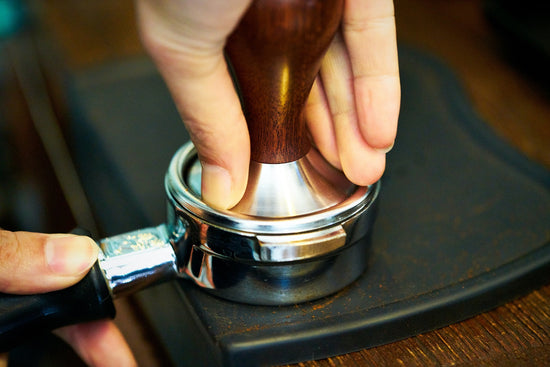If you consider yourself a true coffee enthusiast, then mastering the art of Cuban coffee should be on your list of achievements. Known for its bold flavour, rich aroma, and unique brewing method, Cuban coffee offers a delightful experience that can elevate your daily coffee ritual. At Redber Coffee, we’re passionate about bringing the best of global coffee culture to our customers, and Cuban coffee is no exception. This blog will guide you through the history, preparation, and enjoyment of Cuban coffee, perfect for 25 to 65-year-old coffee lovers in the UK.
The Rich History of Cuban Coffee
Cuban coffee has a storied history that dates back to the 18th century when the first coffee plants were brought to the island. Coffee quickly became a significant part of Cuban culture and economy, with the country's unique climate and fertile soil producing some of the world's finest beans. By the mid-19th century, Cuba was one of the largest coffee producers globally. However, political and economic challenges over the years have impacted production, but the passion for quality coffee has never waned.

Today, Cuban coffee is renowned for its strong, sweet flavour and cultural significance. It’s not just a drink; it’s a tradition and a way of life. Understanding the history and cultural importance of Cuban coffee enhances the experience of making and enjoying it.
Understanding the Basics: What Makes Cuban Coffee Unique?
Cuban coffee stands out for several reasons:
- Espresso Base : Cuban coffee typically starts with a base of espresso. The concentrated coffee is the foundation for various Cuban coffee drinks, each with its unique twist.
- Sweetness : A distinctive feature of Cuban coffee is its sweetness. Sugar is often added directly to the coffee grounds or to the brewed espresso, resulting in a rich, caramelised flavour.
- Espumita : This is the frothy foam created by whipping the first few drops of espresso with sugar until it forms a creamy, frothy consistency. It’s an essential part of Cuban coffee, adding both texture and sweetness.
How to Make Cuban Coffee at Home
Now that we’ve covered the basics, let’s dive into how you can master the art of making Cuban coffee at home. You don’t need to be a professional barista; all you need is the right equipment, ingredients, and a bit of patience.
Equipment Required:
- Moka Pot : Also known as a stovetop espresso maker, a Moka pot is essential for brewing the strong coffee base.
- Espresso Cups : Small cups are ideal for serving Cuban coffee, as it is traditionally served in small, concentrated amounts.
- A Small Mixing Bowl and Spoon : For making the espumita.
Ingredients:
- Coffee Beans : High-quality, dark roast beans are ideal. At Redber Coffee, we offer a variety of beans that are perfect for Cuban coffee.
- Sugar : Regular granulated sugar works well for creating the sweet, frothy espumita.
- Water : Fresh, filtered water is best for brewing.
Step-by- Step Guide
Prepare the Moka Pot : Fill the bottom chamber of your Moka pot with water up to the safety valve. Add finely ground coffee to the filter basket, packing it down gently but firmly.

Brew the Coffee : Assemble the Moka pot and place it on the stove over medium heat. As the water heats up, it will be forced through the coffee grounds, producing a rich espresso.

Make the Espumita : While the coffee is brewing, place a few teaspoons of sugar into a small mixing bowl. As soon as the first few drops of espresso start to emerge, add them to the sugar. Whisk vigorously until the mixture turns light brown and frothy.

Combine and Serve : Once the coffee has finished brewing, pour it over the espumita in the mixing bowl. Stir until the foam rises to the top. Pour the finished coffee into small espresso cups and enjoy!

"Coffee, the favorite drink of the civilised world"
Exploring Different Types of Cuban Coffee
Cuban coffee is versatile, and there are several variations you can try:
Café Cubano (Cuban Espresso)
This is the traditional Cuban coffee, known for its strong, sweet flavour. It’s perfect for a quick pick-me-up or as a post-meal treat.
Cortadito
A cortadito is a small shot of Cuban espresso cut with an equal amount of steamed milk. It’s slightly less intense than a café Cubano but still rich and flavourful.
Café con Leche
This is the Cuban version of a latte, made by mixing Cuban espresso with hot milk. It’s typically enjoyed at breakfast with toast or pastries.
Tips for Perfecting Your Cuban Coffee
- Use Fresh Beans : Freshly roasted beans produce the best flavour. At Redber Coffee, we offer freshly roasted beans delivered right to your door.
- Grind Just Before Brewing : Grinding your beans just before brewing ensures maximum freshness and flavour.
- Control the Heat : When using a Moka pot, medium heat works best. Too high a temperature can result in burnt coffee.
- Experiment with Sugar : Adjust the amount of sugar to your taste. Cuban coffee is traditionally quite sweet, but you can customise it to your preference.
- Practice Making Espumita : The frothy espumita is a hallmark of Cuban coffee. It might take a few tries to perfect, but the result is worth it.
Pairing Cuban Coffee with Food
Cuban coffee pairs wonderfully with a variety of foods. Here are some suggestions:
- Breakfast : Enjoy a café con leche with toast and butter, or a cortadito with a pastry.
- Mid-Morning Snack : A café Cubano pairs well with a slice of pastel de guayaba (guava pastry).
- Afternoon Treat : Savor a colada with friends, accompanied by Cuban croquetas or empanadas.
- After Dinner : End your meal with a strong café Cubano and a piece of dark chocolate or a flan.
Conclusion
Mastering the art of Cuban coffee is a rewarding endeavour that allows you to experience a rich cultural tradition while enjoying one of the world’s most beloved beverages. At Redber Coffee, we are dedicated to bringing you the finest coffee experiences, from sourcing the best beans to providing expert tips on brewing the perfect cup.
By following the steps outlined in this guide, you’ll be able to create a variety of Cuban coffee drinks that are sure to delight your senses and impress your friends and family. Remember, Cuban coffee is not just about the drink itself but also about the shared experiences and connections it fosters.
So, why not start today? Gather your ingredients, fire up your Moka pot, and embark on a journey to master the art of Cuban coffee. Share your creations with us on social media using the hashtag #RedberCubanCoffee and join our community of coffee enthusiasts who appreciate the finer things in life.
Here’s to many delicious cups of Cuban coffee and the joy they bring! Cheers! ☕
At Redber Coffee, we believe in exploring the spectrum of possibilities. We offer a variety of roast profiles for each coffee origin, catering to diverse palates. Whether you crave a bright and lively cup or a smooth and mellow experience, we have a roast curve that will tantalize your taste buds.
Frequently Asked Questions
1. What Makes Cuban Coffee Unique?
- Cuban coffee is known for its strong, bold flavour and sweetness. It is typically made using a Moka pot and involves creating a frothy sugar mixture called espumita, which adds a distinctive texture and taste to the coffee.
2. Can I use any coffee beans for Cuban coffee?
- While you can technically use any coffee beans, dark roast beans are recommended for the best flavour. At Redber Coffee, we offer a variety of beans perfect for making authentic Cuban coffee.
3. How does Cuban coffee fit into Cuban culture?
In Cuba, coffee is more than just a drink; it's a social ritual and a symbol of hospitality and community. Sharing a cup of Cuban coffee often signifies friendship and togetherness.
4. Is Cuban coffee sustainable and ethically sourced?
At Redber Coffee, we are committed to sustainability and ethical sourcing. We partner with coffee producers who prioritise fair wages and safe working conditions and promote sustainable farming practices.
Products Perfect For Cuban Coffee:






